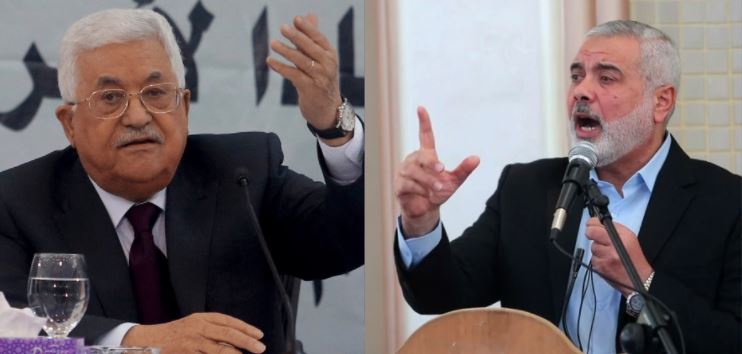The Israel-Hamas war which came to a temporary and superficial halt on May 21 has two aspects to it. First, indeed, is the very visible fight between Israel and Hamas, in which the Jewish nation and its armed forces scored a spectacular win. The other aspect, however, has a lot more to do with whatever little domestic politics the dispersed state of Palestine has to account for. We are talking about the rivalry between Hamas and Fatah.
While Hamas is an Islamist terror organisation claiming to fight for the ‘Palestinian cause’, Fatah is a toned-down proponent of anti-Zionism and Palestinian freedom. Fatah is the political force currently in control of the Palestinian Authority in the West Bank. Hamas and Fatah are contenders in seeking control of the Palestinian Authority. Hamas, on its part, is responsible for the governance of the Gaza strip – a job at which it has magnificently failed.
Fatah’s political appeal within the West Bank, on the other hand, has slumped. Its leader, who also happens to be the President of the Palestinian Authority – Mahmoud Abbas is seen as a spineless man by Palestinians whose government is submissive before Israel at best and complicit at worst. It is therefore not surprising that Abbas has indefinitely postponed Palestinian elections repeatedly, with the most recent deference coming on April 29.
However, Hamas is getting restless. Israel has blockaded the Gaza Strip, and the Islamist organisation funded by Iran is finding it increasingly difficult to exist. Also, it is losing relevance among Palestinians. Perhaps not at a rate at which the approval ratings of Fatah and Mahmoud Abbas are dipping, but Hamas too is desperate to project itself as the protector of Palestinians.
Read more: Hamas’ attack on Israel has little to do with Israel. It’s about removing Abbas and taking over
So, when Mahmoud Abbas decided to postpone Palestinian elections once again, Hamas found the perfect opportunity to convince Palestinians that the Fatah-led Palestinian Authority was doing Israel’s bidding. It orchestrated near-simultaneous tensions in Jerusalem. The storming of the Al Aqsa mosque by Israeli forces, meanwhile, is said to have been triggered due to the stone pelting by devotees and flagrant violations of Covid-19 SOPs on their part. It does not require a brilliant genius to realise that the events leading to the Israeli forces entering the mosque were all orchestrated by Hamas.
The storming of the Al Aqsa Mosque, coupled with a title dispute in Jerusalem’s Al-Jarrah colony, gave Hamas the perfect opportunity to strike Israel with thousands of rockets. That it was pounded by the Israel Defense Forces and hammered to the ground for its misadventures is visible to the world at large. What is not visible is the boost that Hamas has received among Palestinians for appearing to stand up to Israel, at a time when Mahmoud Abbas and his Fatah are rather occupied in securing their own political deposits.
Hamas has been able to project itself as the true protector of the Palestinian cause. That it has done so at the expense of Palestinian civilians which it used like cattle fodder is something which the extremist populations of West Bank and Gaza are willing to give a miss.
Many were confused upon seeing Hamas celebrating the ceasefire with Israel as some sort of a spectacular victory which it had registered over the IDF. However, the truth is that Hamas was simply jubilant about the fact that it successfully established itself as the face of Palestinian ‘resistance’ to Israel subsequent to the recent hostilities, thus displacing Fatah. The support for Hamas and the extremism it has to offer has many takers both in Gaza as well as in the West Bank. Elections or not, Hamas has successfully established itself as the mantle carrier of the Palestinian cause.
This is, of course, the propaganda part of Hamas’ hostilities against Israel. The real objective, however, is to gain control over the West Bank by using a deadly war to mobilise public sentiment in Palestinian territories.
